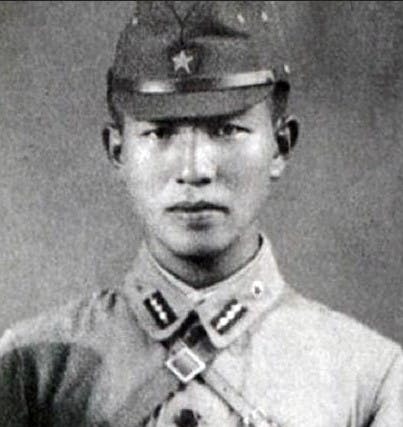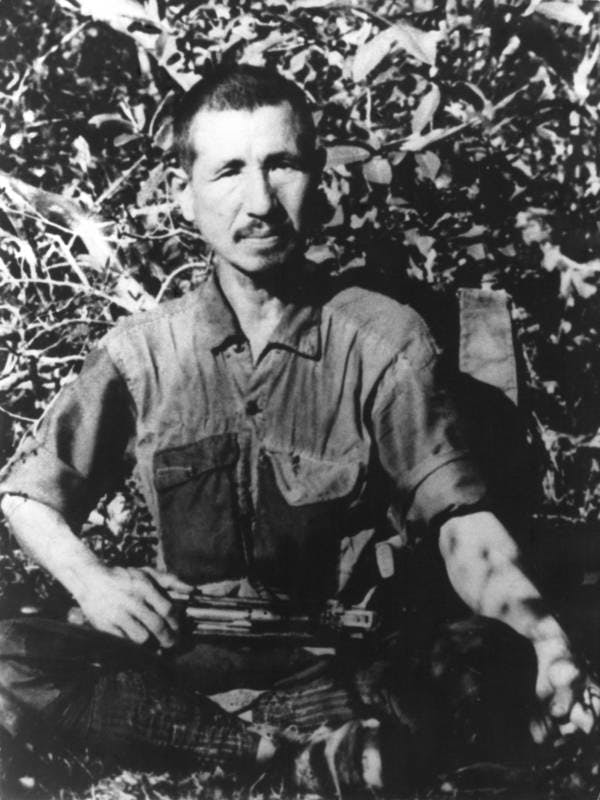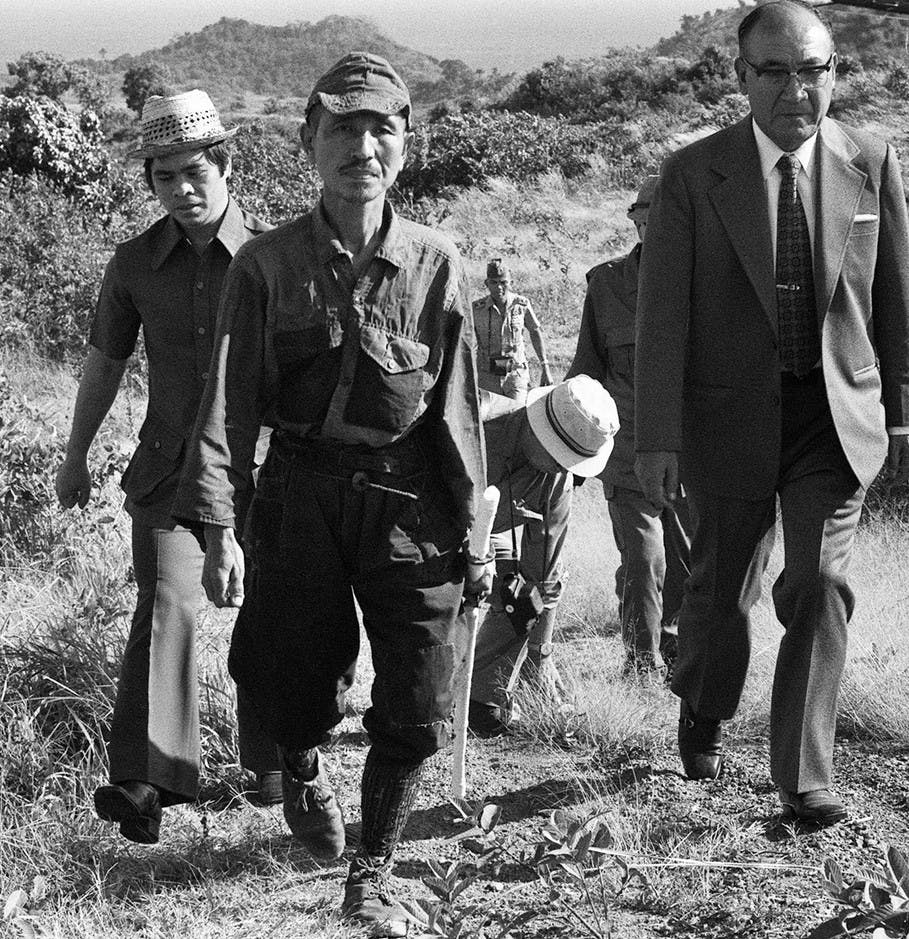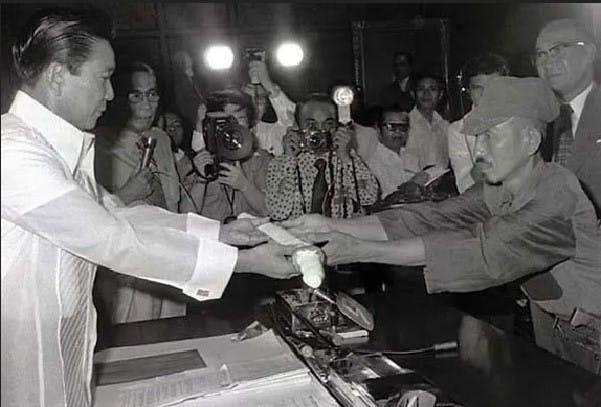HIROO ONODA: THE MAN WHO WAGED A LONELY WAR
In December of 1944, as American forces were battling their way across the Pacific and closing in on Japan, a young Imperial Japanese Army intelligence officer named Hiroo Onoda landed on the small island of Lubang in the Philippines. He had been specially trained for guerrilla warfare, sabotage, and intelligence gathering to ready for the expected US invasion. So why is he known as the soldier who wouldn’t surrender?
Onoda was ordered by his commanding officer, Major Yoshimi Taniguchi, to conduct disruption operations and never surrender. “It may take three years, it may take five years, but whatever happens we’ll come back for you,” Taniguchi told him.

But the Americans invaded sooner than expected, routing the Japanese defenders from Lubang by February 1945. As Japanese soldiers retreated or surrendered, Onoda gathered a ragtag group of three fellow holdouts: Private Yūichi Akatsu, Private First Class Kinshichi Kozuka and Corporal Shōichi Shimada.
Then something unexpected happened – Japan surrendered that August. But Hiroo Onoda would not accept defeat so easily.

TAKING LIEUTENANT ONODA’S ORDERS TO THE EXTREME
Hiding deep in Lubang’s thick jungles, Onoda and his men were determined to press on with guerrilla attacks no matter what. In October 1945, another group of Japanese stragglers showed Onoda a leaflet proclaiming that the war had ended months before. Yet he dismissed it as enemy propaganda.
“I am sorry they had to die meaningless deaths all because of my stubbornness,” Onoda later lamented.
That set the tone for what would become nearly three decades of attacks on local villages. These were violent skirmishes with search parties, and stealing food to survive on this small jungle island. While the world moved on, Hiroo Onoda remained locked into 1944.
He and his dwindling band faced several attempts to coax or capture them. In 1952, photos and letters from their families were air dropped over the island. However, the suspicious intelligence officer insisted they must be clever forgeries.
Over the years, first one comrade, then another, fell to gun battles or hardship, leaving only Onoda and Corporal Kozuka by 1972. Villagers lived in terror of their property being sabotaged, and police forces hunted the hostile pair to no avail.
Still Lieutenant Onoda was the soldier who wouldn’t surrender and would not yield an inch. As far as he was concerned, he was just following orders in waiting for the day Japan would return to claim Lubang as Major Taniguchi had sworn.

Credit…Jiji Press/Agence France-Presse — Getty Images
ALONE ON A FORGOTTEN ISLAND, A SOLDIER CONTINUES HIS WAR
By 1974, over 27 years after receiving them, Hiroo Onoda remained utterly committed to his now long-expired orders to stand and fight on Lubang.
The rest of the world had radically transformed in the intervening decades. The world was enjoying economic booms, mourning iconic assassinations, enthralled by Beatlemania, captivated by space exploration – yet the resilient lieutenant’s jungle struggle remained frozen in time.
In Japan, Onoda and the supposedly deceased Kozuka were viewed as folk legends from a bygone era. Bored with his stale life, Japanese adventurer Norio Suzuki became fixated on proving the far-fetched rumors of an eccentric holdout soldier to be true. He found Onoda after weeks roaming Lubang’s forests in February 1974.
But not even face-to-face encounters convince Onoda that WWII had ended. Suzuki quickly realized emotion or facts would not sway a man trained to distrust the enemy. Instead, Suzuki promised to bring Onoda’s beloved commanding officer back to formally relieve him of duty.

ONE LAST ORDER TO STAND DOWN
In March 1974, 29 years after Lt. Onoda, the soldier who wouldn’t surrender, watched his fellow troops retreat from Lubang Island, Major Yoshimi Taniguchi returned fulfilled his promise. The retired officer journeyed from Japan to the Philippines. he ordered Hiroo Onoda to relinquish his arms and leave with him.
Onoda obediently surrendered his still functional bolt-action rifle and 500 rounds of ammo accumulated since 1945. Finally, this brought his one-man campaign to resist an Allied takeover of Lubang to an end after 10,000 days.
No other straggler soldier had held out so long in isolation or so stubbornly clung to their original directive. Though he became an instant celebrity, Lt. Onoda struggled to adjust to a new Japan transformed by postwar growth and technology. Within a year, he chose to move to Brazil seeking a simpler life.
In his jungle foxhole frozen in time, Onoda embodied the extraordinary tenacity and spirit of imperial Japanese forces during WWII. His tireless loyalty and self-discipline were products of an era gone by – for better or worse. Onoda’s incredible real-life story of a soldier who fought solo for a cause already lost still fascinates decades later.



